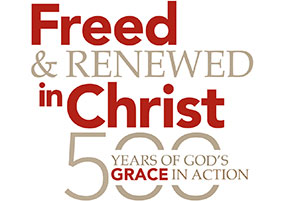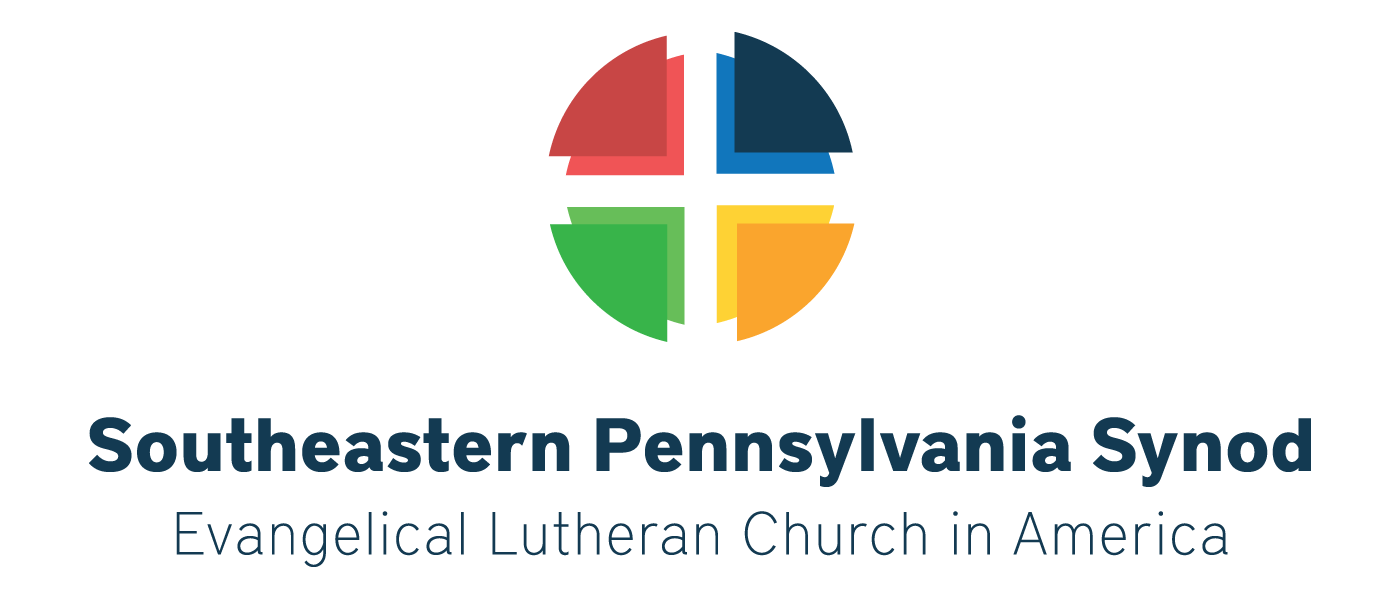August 16, 2016 in ELCA
ELCA presiding bishop reflects on work of the church and looks to future priorities
 In her report to the 2016 Evangelical Lutheran Church in America (ELCA) Churchwide Assembly, ELCA Presiding Bishop Elizabeth A. Eaton reflected on the ELCA’s work over the past three years and lifted up future priorities for the church.
In her report to the 2016 Evangelical Lutheran Church in America (ELCA) Churchwide Assembly, ELCA Presiding Bishop Elizabeth A. Eaton reflected on the ELCA’s work over the past three years and lifted up future priorities for the church.Eaton said much of her focus the past three years has been on the “how and why we do this work,” reminding the assembly of her four emphases for this church: We are church. We are Lutheran. We are church together. We are church for the sake of the world.
“I think it’s important when we organize our work together that we understand that we are church first,” Eaton said. “And we need to be clear that our lives are formed by word and sacrament, that we gather as the beloved children of God around the means of grace, that our lives are in Christ.”
Emphasizing the Lutheran identity and the distinctive Lutheran voice, Eaton said she hoped the church is beginning to understand that “God is calling us to be a diverse, inclusive, multicultural church.”
“What does that look like? What does Lutheran look like?” asked Eaton.
“We have to be very, very careful that we don’t define ourselves by culture or by cuisine. There are more Lutherans of color throughout the world and throughout the Lutheran federation than there are European descent Lutherans,” said Eaton.
In an effort to focus on theology as that which defines and unifies all Lutherans, Eaton told the assembly she is calling this church to read the small catechism together from now until October 2017.
Focusing on being church together, Eaton said it is important members understand that church goes beyond the four walls of their congregations to include synods and the whole of the ELCA.
“But it’s not just the ELCA. We are part of The Lutheran World Federation where we are church together, with churches from all across the world. And we’re not just Lutheran,” said Eaton referring to the ELCA’s six full communion partners.
“We just can’t somehow ignore that we live in an interreligious culture right now and that we need to work together, particularly at this time in this country when there’s so much fear of the other, particularly of people of other religious traditions,” she said.
Eaton lifted up the AMMPARO strategy as “a wonderful example of what we can do better together than we can do apart.”
AMMPARO – the ELCA’s strategy to Accompany Migrant Minors with Protection, Advocacy, Representation and Opportunities – was passed by this assembly Aug. 10.
As a church for the sake of the world, Eaton said, “Some of the most important words that are spoken in a liturgy are: Go in peace, serve the Lord. So we’re sent out each worship time to be engaged in the world, understanding that we’re nurtured by the sacraments and the word but that we are called to serve this world and not to see people as problems to be solved.”
In her report, Eaton also reflected on the upcoming 15th anniversary of the terror attacks on Sept. 11, 2001, sharing the story of an ELCA chaplain in New York who anointed with oil the sign of the cross on firefighters as they entered the World Trade Center.
“In baptism, we have all been marked with the cross of Christ and are all called not to run away but to run to those dark and deadly places, bringing the light and life of Christ,” she said.
In addressing the work ahead for this church, Eaton emphasized the importance of working together across the church on issues such as immigration reform and racial injustice.
“We are working with our partners, Lutheran Immigration and Refugee Services, to settle immigrants, especially the Syrian immigrants as they come over here and … welcome them so they become a part of our fabric of our country … but we have to keep our focus. These are children of God. They’re human beings,” she said.
Speaking to the issue of white privilege, Eaton told the assembly, “We didn’t create it. We inherited it. But now that we know that it exists, and our eyes are open, we are complicit if we don’t do something to change laws and attitudes so that there is a level playing field in this country and so there is liberty and justice for all.”
“But we can’t do it alone or in isolation,” she added. “We deeply need all of our brothers and sisters of color, for us to understand what life is like in this country, and then we need to commit ourselves to do something about it. So please, would you go back to your congregations – and this is a tough one – and right now if this is being live streamed and you can quote this and tweet this out: Pastors, when you start to get pushback from your congregations, just blame it on me.”
“But we can’t do everything all the time everywhere,” said Eaton, emphasizing “Called Forward Together in Christ,” an initiative that asks members to join a conversation about the future priorities of the ELCA. Eaton urged those at the assembly to have conversations around this initiative in their congregations.
In closing Eaton told the assembly, “We have work to do. God will give us energy and the courage and the will to do it. Let’s go, church.”
The assembly – the highest legislative authority of the ELCA – is meeting at the Ernest N. Morial Convention Center in New Orleans. Meeting under the theme “Freed and Renewed in Christ: 500 Years of God’s Grace in Action,” the assembly’s business will include preparations for observing the 500th anniversary of the Reformation in 2017.

